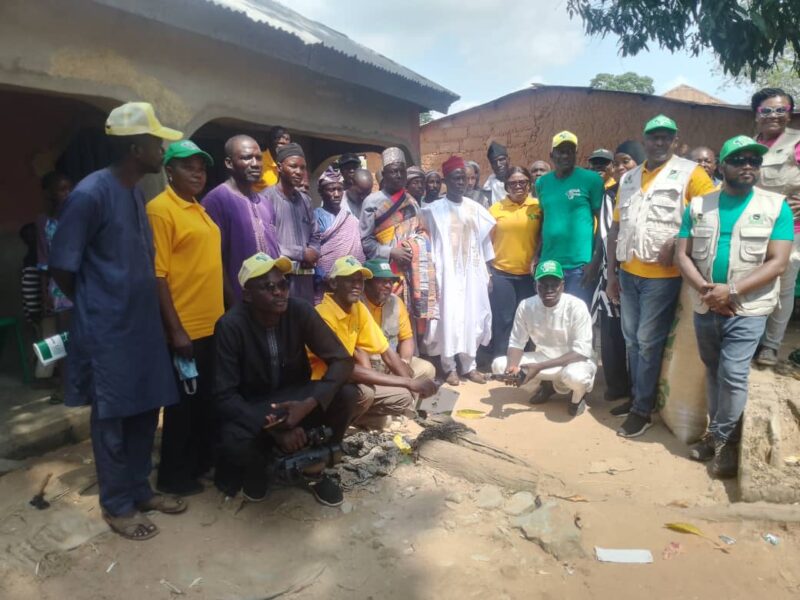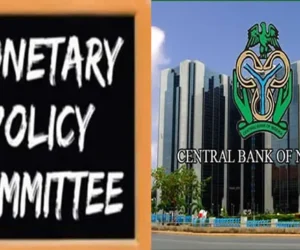2
MICHAEL DAVID
An association of farmers in Nasarawa State have applauded the Sasakawa Africa Association (SAA) for empowering and training them on the modern system of farming in order to ensure food sufficiency in the state.
The farmers also enumerated their achievements recorded so far since the intervention of Sasakawa in the state.
They mentioned their achievements to include: setting of mill factory in Assakio in Lafia local government area of the state, building of rice value chain development centre in Asakio, training of some cooperatives on how to make biocha, and training of some cooperatives on the modern system of farming, others are: training on nutrition value addition
Sasakawa Africa Association is a Japanese nongovernmental organisation (NGO) in collaboration with the Japanese government, supported by the NIPPON Foundation is the core funder of this programme in some selected African countries.
Mr Emmanuel Angulu Odeh, centre manager of Apashi Woza Cooperative Society rice mill in Asakio, who spoke during the media assessment visit in Asakio community, said that since the setting up of the factory, it has made a significant impact on the life of the community and beneficiaries.
Mr Emmanuel Angulu who, apart from commending the Japanese government for empowering their association, saidthat when the centre was commissioned by the Sasakawa, the centre has brought a significant impact on their life.
He added that the centre has opened a lot of business opportunities to people of the Asakio community and Nasarawa State at large
Also enumerated the achievement of the Albarka cooperative, with the intention of Sasakawa, is Mrs Blessing Emmanuel in the Asakio community said that the Sasakawa Association has helped their cooperative.
She explained that before now, Albarka Cooperative was just to contribute money in one place and share the profit, but now, with the intervention of Sasakawa Association, their cooperative is into the production of biochar that improves soil fertility and rice farming.
According to her,” We are making a lot of saves since we started selling biocha that we are producing. We have our selling depot in so many places now. We appreciate Sasakawa for its intervention.
Also speaking during the media assessment visit in Alagye in Doma local government area of Nasarawa State, a member of Salama Oklo cooperative, Mr Audu Agwashi in Alagye community, said that before the intervention of Sasakawa, they were operating locally, but when Sasakawa trained them how to farm so many things, it helped the association.
“Through Sasakawa, some development has come to this community. They gave us seed and trained us in an improved modern system of farming,” he said.
Mr Yusuf Kuje, s member of Salama Oklo cooperative in Alagye community in Doma local government, said,” Sasakawa Association trained me how to make biocha, and I am applying it in my farm where I used to harvest 5 bags; this year I harvested 20 bags.
“The biocha improved my farm soil fertility, which gave me a bountiful harvest. The intervention of Sasakawa has improved my economic status.
The Osage of AlagyeJerry Dominic Osuko, who, apart from applauding the Sasakawa Association for training farmers in his community on approved modern farming, appealed for more intervention in order to encourage farmers in his community.
Mrs Salome Isaac, a member of Kauna cooperative in Dadare, Obi local government area of the state, said that Sasakawa trained them how to preserve their agricultural products and how to cultivate vegetables and rice farming.
“We are calling on the Sasakawa Association to extend its intervention to other places to increase productivity in the agricultural sector and ensure sufficient food in the state.
In his remarks, Dr Godwin Atser, Country Director, SAA Nigeria, called for sustained collaboration with the Nasarawa State Government to enhance agricultural productivity, food security, and youth inclusion in the sector.
The Country Director applauded Gov. Abdullahi Sule and the Nasarawa State government for providing an enabling environment for agricultural development.
He noted that the association, with support from The Nippon Foundation of Japan, had implemented several impactful initiatives across farming communities in the state, including the rice aggregation and processing centres in Assakio and Agwatashi at a cost of over $ 1million U.S. Dollars.
He explained that the support has increased rice production from 1.8 tonnes to 4.8 tonnes per hectare, representing over 100 per cent rise in productivity.
He also said that the interventions, anchored on SAA’s 2021–2025 Strategic Plan, promote regenerative, market-oriented, and nutrition-sensitive agriculture aimed at improving productivity, resilience, and livelihoods.
Also in his speech, Mr Moses Nongoatse, SAA Communication Officer, said the association’s interventions aim to introduce technologies that enhance productivity and mitigate the effects of climate change.
“We are promoting climate-smart and high-yielding crop varieties that are drought-tolerant and disease-resistant,” he said.
He explained that SAA works closely with the Federal and State Ministries of Agriculture, as well as Agricultural Development Programmes (ADPs), to implement its interventions using existing extension structures.








